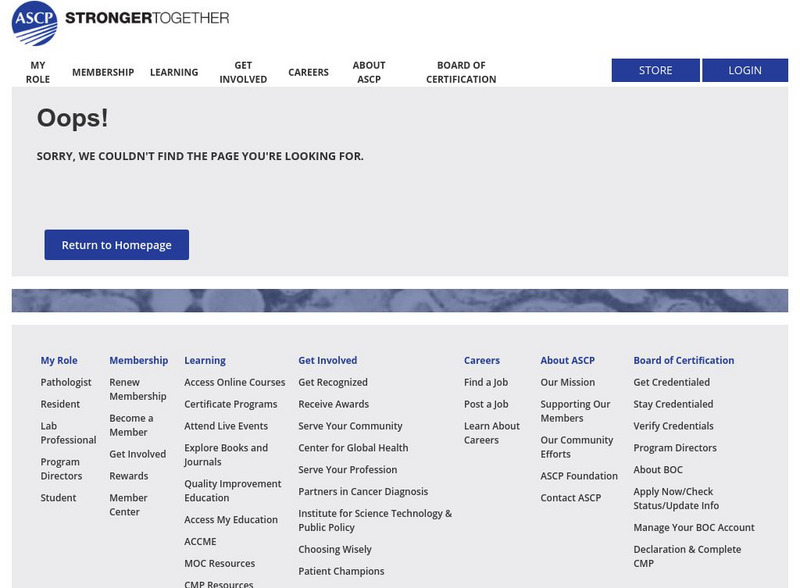Baylor College
Milestones in Microbiology
Life science learners read a set of six short Discovery Readings that describe historical events in the field of microbiology. For each, they identify clues about when the event occurred and then they try to arrange events in...
Curated OER
Microbiology Lab Safety
In this biology worksheet, students are introduced to the practices of safety as related to using a laboratory and then answer some questions as an assessment.
Baylor College
Post-Assessment: And Now, What Do You Know About Microbes?
Your life science class works in their groups to review the concept maps that they have constructed over the course of a microbiology unit. They share what they have learned with the rest of the class. In a second session, they are given...
Curated OER
The Science of Microbes
Looking for an interesting text to share the world of microbes with your middle school classroom? The edition contains explanations, worksheets, experiments, discussions, and links to outside sources for a true and complete...
Curated OER
Arctica - An Interactive Mystery
Rumours of illness, poisoning, and madness - a ship disappears without a trace! Read this interactive science story and use deductive reasoning skills to solve a mystery. This engaging resource gives science stars a chance to practice...
Baylor College
Magnifying and Observing Cells
Though it isn't a novel activity to prepare onion cell and Elodea plant cell slides as examples of cells in a microbiology unit, this resource will leave you thoroughly prepared. As pupils examine the slides that they prepare, they draw...
Baylor College
Microbes and Disease
Discuss how diseases have impacted human history. Divide your class into groups and assign each group one of the following: tuberculosis, malaria, plague, cholera, smallpox, and AIDS. They read up on, complete a concept map, and present...
Baylor College
The Variety and Roles of Microbes
Mini microbiologists play a card game in which they group microorganisms by groups: virus, fungus, protist, or bacteria. Then they identify the roles different microbes play in the natural world and explore how humans effectively use...
Learning Games Lab
Bacteria Sampling
Scholars explore the procedure for bacteria sampling in a virtual lab by first walking through a detailed step-by-step procedure of preparing the samples of raw milk and pasteurized milk, growing the bacteria, and comparing results....
Learning Games Lab
Gram Staining
Scholars use a lab simulation to test contaminated yogurt for bacteria by gram staining. They learn proper lab procedures for handling bacteria and for sterilizing equipment, and then walk through the process on their own to try gram...
Learning Games Lab
Controlling Water Activity in Food
Food storage matters! Scholars learn how the amount of water in corn can affect its rate of spoilage. They create a control group, then test three corn samples stored in three different locations for water activity. As a result of the...
Learning Games Lab
How to Use Oil Immersion Microscope
Teach the class how to use a microscope to identify bacteria in food. Scholars explore the different parts of the microscope and learn how to determine total magnification. They walk step-by-step through the procedure of preparing slides...
Learning Games Lab
Testing and Adjusting pH
Pupils learn how to control food spoilage by adjusting the food's pH. They see that one of the most dangerous bacteria can grow in food if people don't handle and store food properly. Using knowledge of the bacteria's preferred pH,...
Curated OER
Counselors/Teachers
Administrators encourage students to take as much English, Science and Math as they can. They encourage students to take the most advanced classes they can. They help students find opportunities to explore medical careers through...
Southwestern Medical Center
Field Epidemiology: Investigation of an Unknown Disease
More than 90 percent of the people in a building have come down with an illness, and it is your job to investigate. Teachers give scientists the data needed to decide what is important and how they can solve the mystery....
Kenan Fellows
Unit 4: Bioethics and the Future of Biotechnology
What's the future of biotechnology? Explore a hot topic in the fourth and final unit in a series of Biotechnology lessons. Learners develop an understanding of the many issues in bioethics, then create an argument for or against the role...
Curated OER
Bacterial Transformation
Students discuss a bacterial experiment they previously performed and complete a pre-assessment. They participate in a lecture discussion given by the teacher through PowerPoint and then complete a cartoon worksheet and post-assessment.
Curated OER
Health Careers
Each of the 9 slides have a list of possible careers within areas of the Health industry. There are no explanations or details of any of the jobs and so this would be useful to introduce the areas and then let the students research...
Curated OER
Invent PCR: You May Win a Nobel Prize
Pupils gain an appreciation for the simplicity, but also complexity and elegance of PCR. They comprehend all components of the protocol. Students explain exactly how CPR works, and why, after the third cycle, the predominant DNA being...
Science Buddies
Science Buddies: Which Acne Medication Can Really Zap That Zit?
One major cause of acne is the colonization and infection of clogged pores with bacteria. By testing different acne medications and treatments, you will be able to determine their effectiveness when it comes to killing bacteria.
Rice University
Rice University: Med Myst: Medical Mysteries on the Web
Two problem-solving detective games, each with its own series of missions, involve players in microbiological investigations into the causes and spread of diseases. Concepts covered include disease pathology, Koch's principles, immune...
National Health Museum
Access Excellence: Yellow Jackie: Outbreak
Interactive mystery about a disease outbreak. Students investigate an outbreak of a disease on board a ship by interviewing people, consulting medical reference, and observer other clues to determining what disease is causing the outbreak.
Other
Careers in Medical Laboratory Technology
This site lists many of the careers in lab technology, along with descriptions of each one. There is also information on schooling and certification.
Rice University
Rice University: Web Adventures: Med Myst: Reloaded: Disease Defenders
In this online adventure game, become part of a team of experts investigating an infectious disease outbreak. Learn about the science of infectious disease and the medical careers of real scientists such as an epidemiologist,...























